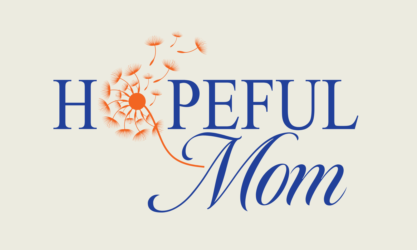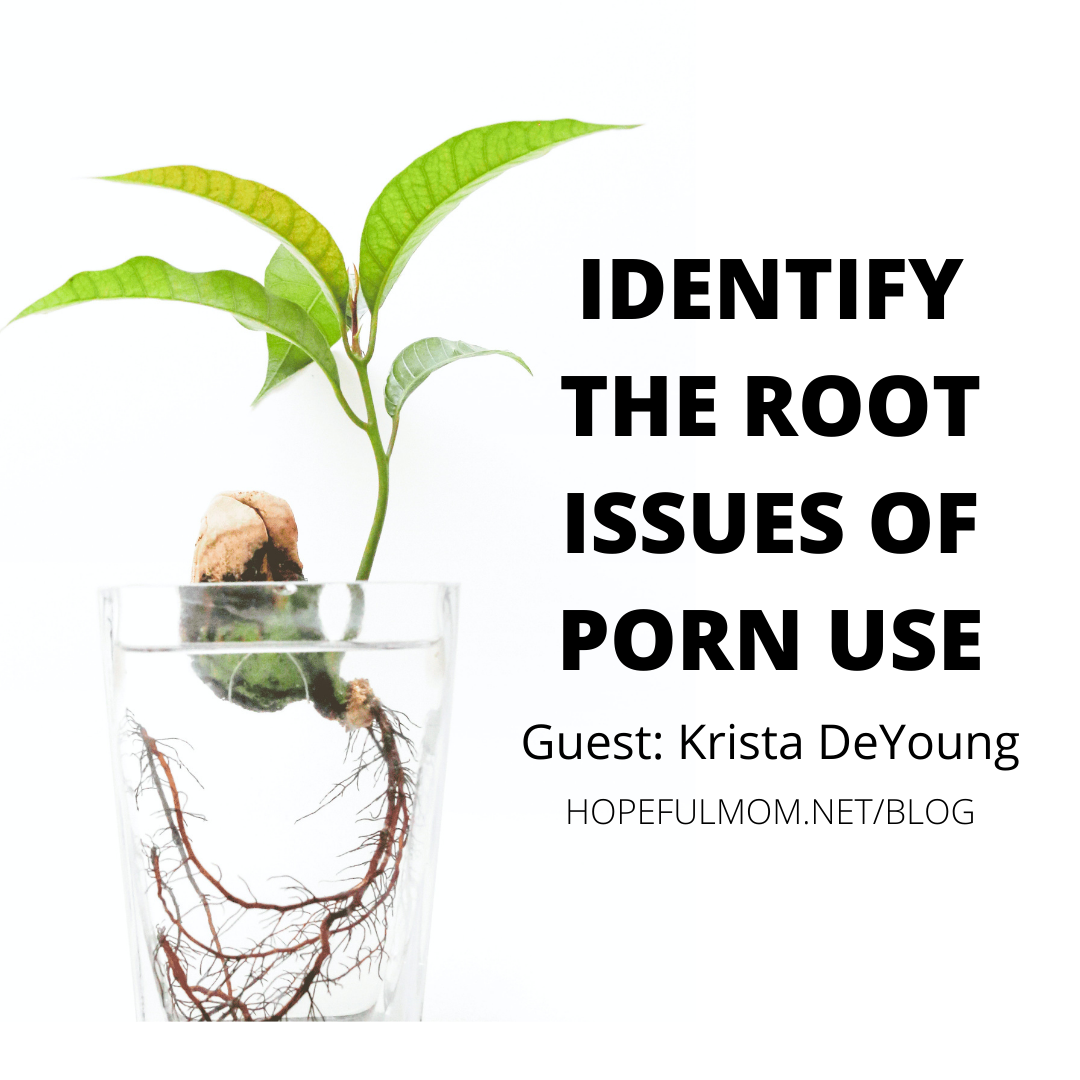I met Krista when we were both speakers at an online conference for thehopeline last Spring. When I saw her session, I felt the compassion she has for teen girls. She listens to them, equips them, and offers them hope through Girl Above. I asked her to talk with the parents here, and I love how she especially encourages us to look beyond the behavior and identify the root issues of porn use.
If you are a parent in 2021 and have a child over the age of 8 years old, there is a huge chance you are struggling to navigate your child’s exposure to or use of pornography. This does not make you a bad parent; this makes you a 2021 parent. Unfortunately, for the first time in the history of the world, our children carry a free and unlimited drug in their pocket. This drug is internet pornography, and their access to smartphones has made the problem nearly impossible to address. In 2019 there were over 33 trillion views on porn sites. The train has left the station, and parents are now just trying to keep up.
After ten years of working with teens, my best advice for parents is to look WAY beyond the behavior and identify the root issues motivating the behavior. Once you have identified the root causes, become someone with whom your child can have in-depth conversations to address and heal those areas of their life.
IDENTIFY THE ROOT ISSUES OF PORN USE
When you notice a negative pattern of behavior in your child, many parents’ first response is to punish the behavior and assign a consequence for the child’s actions. I believe discipline and personal responsibility are essential. However, some disciplinary actions are ineffective if the child does not know why they did what they did or how to prevent the behavior in the future.
Children generally float down the river of their lives without knowing where they are headed or how they got in the boat in the first place. As a parent, you have an incredible opportunity to help your child understand who they are, what they value, and how they will defend those values.

For example, if you find that your child is watching pornography, the first parental response may be to take their phone away and ground them for some time. Maybe you restrict the friends they hang out with and purchase some parental control software for your home. These are all good things, but they do not address the motivators for watching porn, so some additional steps must be taken.
For example, maybe your child watches porn because they are trying to learn about sex, or they don’t feel valued at school, and porn gives them a sense of value, or they feel like they have to watch it to fit in. These are the things you are looking to discover in your child! These are the root issues of their porn use.
Whether it is porn or any other physical or mental health issue, the first step is to sit down and have an open conversation with your child. Non-judgmentally listen to what they are saying and do your best to interpret what is underneath what they are telling you. Look for emotional wounds, lies they believe about themself and the world, and areas in which insecurities are driving their actions.
Whenever I have discussed pornography use with teens, they always express feelings of shame and wish they had someone to talk to about it. It is my hope that parents can become the trusted advisors of their children.
HAVE IN-DEPTH CONVERSATIONS
Unfortunately, most adolescents do not talk to their parents about the challenging issues they are facing in life. They perceive that their parents either don’t understand, aren’t interested, or are incapable of hearing what they have to say without freaking out. This may or may not be true of you, but their perception is their reality. You might WANT to freak out, but do your best to wear your poker face and show them that you are capable of walking with them through the gritty circumstance they are encountering.
Not only are adolescents uncomfortable engaging their parents in difficult conversations, but most parents also don’t talk with their teens, especially about sex and porn. The sex talks may be the most painful, but if you aren’t talking to them about their sexual ethics, something or someone is. In this case, it’s millions of sexually abusive and exploitative images and videos.
TALKING ABOUT SEX
- Educate yourself on the mental, physical, emotional, and spiritual effects of porn use before entering the conversation. Do your research and come prepared. Don’t watch porn as part of your research.
- Enter the conversation at an appropriate level. If your child is watching porn, they have seen things and know things that are far beyond what you may think, and the birds and the bees talk won’t cut it. They are probably confused and craving honest and accurate answers rather than euphemisms or blanket statements.
- If you are having this conversation, there is a chance your child has been watching porn for a while. They may have been exposed to some dark visuals. Every porn video is only two to three clicks away from violence and abuse. Porn use ravishes its users’ hearts and leaves them confused about their personal identity and dynamics of healthy relationships. Suppose you can help your child establish boundaries with their phone/computer and determine ways to prevent them from watching porn. In that case, that’s great, but you will also need to determine how you are going to address the wounds of their heart and soul. Porn addiction can be very traumatic, and seeking help from a mental health professional is advised.
- The “sex-talk” is a lifelong conversation. Especially once pornography use is in the mix. This will likely be a struggle your child faces for the rest of their life. It will affect every romantic relationship they enter. Porn is a complex addiction. Parents who choose to sit with their children to help them discover and heal the root issues and damage will succeed in helping their children defeat porn. Parents who aim simply to discipline and do not dig deeper often miss the opportunity to help their children heal. Unfortunately, they leave their children alone with their shame and without direction or support.
As a parent, your most incredible opportunity is to be an advocate, protector, and beacon of truth for your child. Today, our culture will not give them the guidance they need to make wise choices and see the world through a healthy lens. In fact, it often seems like we live in an overtly predatory culture, which requires parents to be alert and proactive.
About the author

Krista DeYoung
Krista is the founder of Girl Above and specializes in life coaching and mentoring adolescent girls and parents. Krista is a certified life coach and is currently in the Masters in Counseling program at CCU. She has spent the past decade as a high school/middle school teacher and coach.


